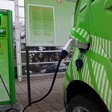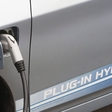
What would some of the advantages of owning an EV be?
1. Cheaper operating costs
Electricity is not free, but it is cheaper in most countries, when compared to gasoline cost, so charging an EV is cheaper than fueling up a conventional tank. Besides that, owners of EVs don't need to have their vehicles taken to the mechanics' all the time, because there is no exhaust system that needs to be taken care of, nor expensive engine work, nor oil changes and much less work on worn out brakes.
2. Silence is Golden
Compared to a conventional gasoline-powered internal combustion engine, Evs are practically silent. They make for a drive that is both very quiet and very smooth. Some say even, it's so quiet it's almost scary.
3. Recharging Your Battery Pack at Home
Gas stations? Where EVs go, we don't need gas stations. For the people living in family houses it really couldn't get much more convenient than this – you park your car and plug it in. It's a matter of a little over 10 seconds. When you get up the next morning and get ready for work, the car is charged and ready to go whenever you are. It will take you another 80 to 100 miles, depending on the type of your car, driving conditions, battery age, etc.
4. Zero Tailpipe Emissions
Despite some will argue, it is a widely accepted notion that EVs leave a dramatically smaller ecological footprint that conventional cars. EVs come without a tailpipe, and without exhaust emissions, which is quite a step forward towards a greener future.
What about the disadvantages?
1. Range Anxiety
Drivers, who are still thinking about buying an EV, are probably familiar with the term. Most EVs that an average household can afford, can reach approximately 80 to 100 miles on a single full charge of the battery, which usually covers daily needs to drive to work, perhaps to the shops, and back home. The problem is, when one wishes to go a little further one day, and the battery needs a few hours to fully recharge. Despite the fact electric car manufacturers are working on developing more enduring batteries, current EV owners definitely have to plan their routes and re-charging stops carefully.
2. Charging EVs
EV users need charging stations at home, which is an additional investment of a little over $1,000. Not a huge hassle, if you have the money and own a house and a garage, but people who live in a block of flats, will experience some difficulties. EVs can also be charged at work, though not all companies offer charging stations yet. Another choice are public charging stations – the network is an on-growing one, but you can't count on having one in every country you want to visit. Planning is cruical.
3. The high price of EVs
EVs are considerably more expensive than conventional gasoline cars, ranging between $30,000 and $40,000, but with the incentives and tax benefits, the price goes down for about $7,000-$10,000. However, some countries are debating having these incentives revoked entirely, so saving up enough money to buy an EV is (or soon will be) quite an issue for some potential buyers.
4. Limited choice of EVs
Currenty, there aren't many models of EVs to choose from. WIth time, there will be, but at the moment potential buyers just don't really have a proper choice.
5. Long Recharging Time
Not everyone can afford the time needed recharge when they need to be at work on time or catch a flight. If EVs are charged for an hour or so, they can usually add a few miles of range – even up to 50 miles in around 25 minutes of charging, if drivers use the publich quick chargers. You can't just add a few miles by charing for a few minutes, like you do with conventional cars. And you can't expect having charging stations on all the roads (yet). What you can do is charge before sleep and let that sentence become your mantra.



